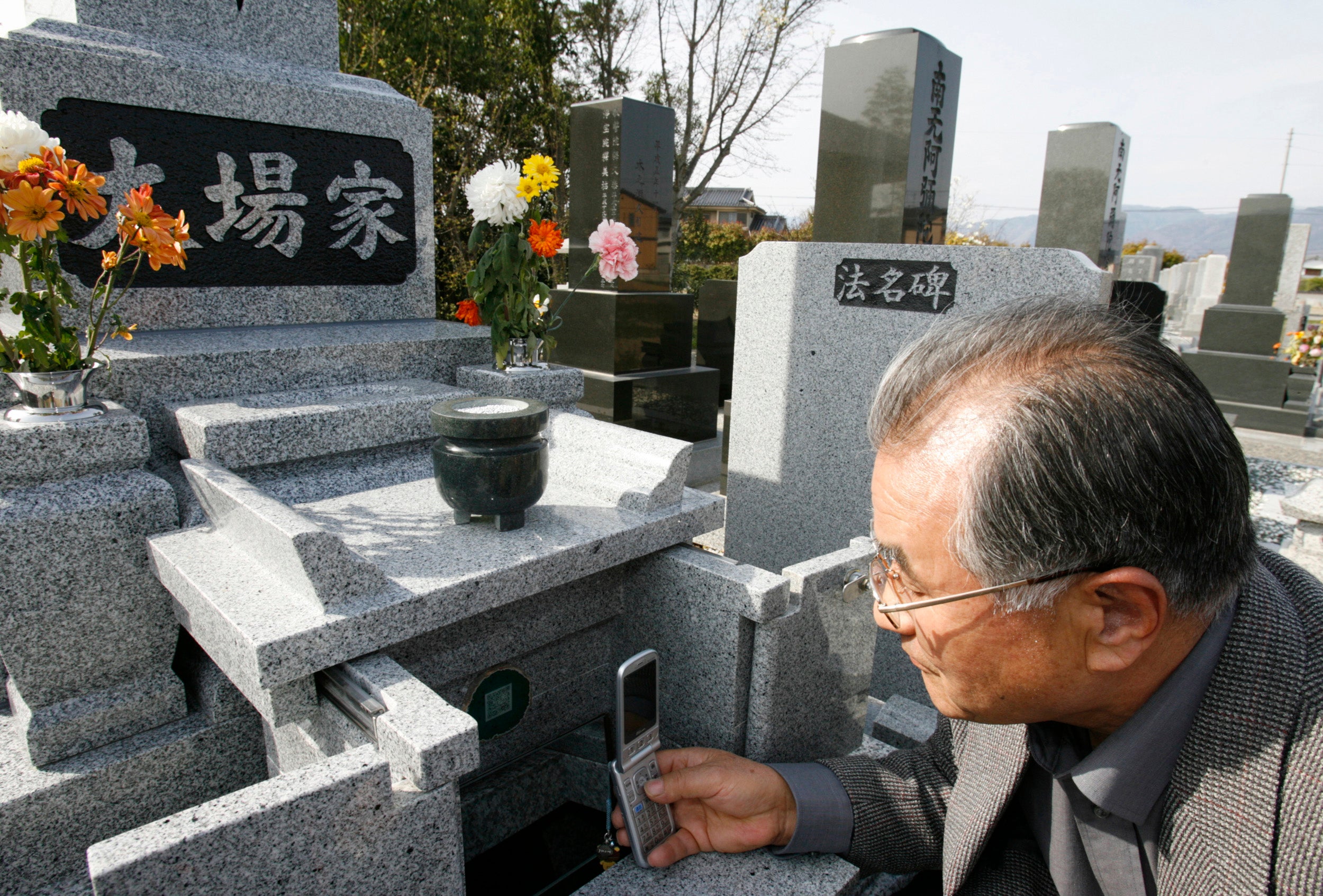Yahoo Japan launches service to delete your files and email your relatives when you die
“If today was the last day of your life, would you be ready for the journey?”

In Japan, preparing for major events in life has become an institution. So much so that there’s a whole preparation vocabulary: There’s “shukatsu,” for when you’re looking for a job; “konkatsu,” for when you’re looking to get married; and “ninkatsu,” for when you’re hoping to get pregnant.
Now, Yahoo Japan is helping people get ready for the inevitable, offering “Yahoo Ending,” a service that, among other things, allows Japanese people to send e-mails to loved ones from beyond the grave.
An animated video on Yahoo Japan’s Web site asks, “If today was the last day of your life, would you be ready for the journey?”
“Yahoo Japan’s job has been to solve social problems through the power of the Internet and to provide services from the cradle to the grave,” said Megumi Nakashima, a spokeswoman for the company. “We had services for the cradle part but not the grave part.”
This end-of-life preparation is also known as “shukatsu” (pronounced the same but written differently in Japanese from the job-searching term). The basic service will deactivate users’ Yahoo accounts after their deaths. It also offers to delete documents, photos and videos from customers’ Yahoo Box online storage accounts and cancel subscription services linked to Yahoo Wallet.
The new Ending service, announced last week, is being portrayed as a way to address the kinds of problems encountered by families around the world who lack the passwords or legal authority necessary to close down the Facebook or other online accounts of relatives who have died.
The search-engine company will send an e-mail the user has prepared to as many as 200 addresses and open a “memorial space” bulletin board where people can leave online condolence messages. All this is being offered for just $1.80 a month — which could work out to be a bargain or could become very expensive, depending on how long a Yahoo customer lives.
The service is a technological step beyond the special notebooks that Japanese stationery companies have been selling — mainly to older people — for recording “ending notes.”
The Yahoo Ending site includes a video showing how its service would work. A family is sitting in a living room when all of their phones beep.
Yahoo then shows the kind of message a family might receive: “If you’re reading this now it means I’ve already left this world. . . . I promised that I would never die before you, my wife, so I’m sorry. I had a really happy life thanks to you.”
In the video, the family is comforted by the message. “It’s so much like Dad, who thought so much about us,” the son says. “We have to fulfil this because it’s his last wish. Mom, don’t worry about a thing — leave it all to us.”
But how does Yahoo Japan know when a user is dead? Well, when users register, they receive a booking number to share with someone they trust. When they die, that person calls a Yahoo Ending number and provides the booking number, and then the deceased’s funeral preferences are shared. The funeral home sends the cremation permit to Yahoo to trigger the sending of e-mails and the deletion of files.
While Google lets users anywhere plan for their afterlives or other periods of dormancy through its “Inactive Account Manager” function, Yahoo Japan goes a step further. In conjunction with Kamakura Shinsho, a funeral services company, it offers advice on how to write a will, plan a funeral and even find a grave.
A basic package offered through Yahoo Japan costs about $4,500, including the funeral, embalming and cremation, plus a wake for 30 people. Feeding guests at the wake costs an extra $30 per person, and for an additional $1,500 you can get a monk to perform the funeral.
The service might well find a market in Japan, with its rapidly aging society. About a quarter of the population is 65 or older. No word, though, on how many of them are tech-savvy.
This story originally appeared on the Washington Post
Subscribe to Independent Premium to bookmark this article
Want to bookmark your favourite articles and stories to read or reference later? Start your Independent Premium subscription today.

Join our commenting forum
Join thought-provoking conversations, follow other Independent readers and see their replies